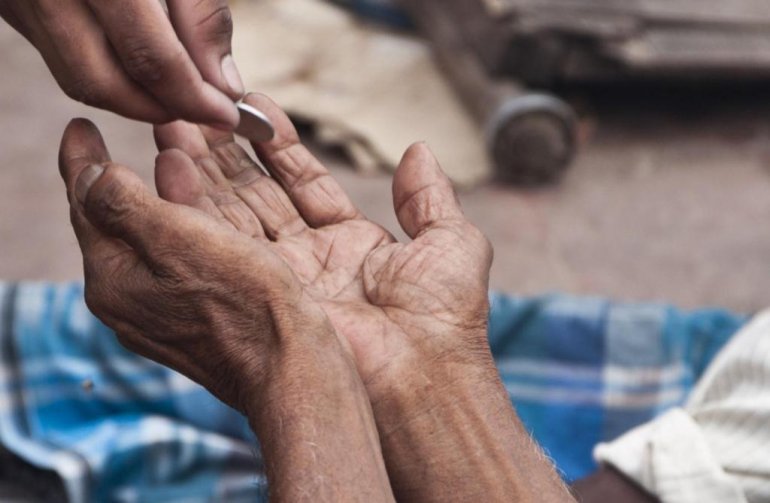We Are No Longer Nigerians”: The Hardships of Ogun’s Leper Communities
 As Nigeria strides toward a digital future, one vulnerable community remains invisible in the country’s rush toward modernization. While the nation boasts of its expanding digital economy and growing cashless society, people affected by leprosy, particularly in Ogun State, face devastating challenges, excluded from basic services and denied their fundamental rights.
As Nigeria strides toward a digital future, one vulnerable community remains invisible in the country’s rush toward modernization. While the nation boasts of its expanding digital economy and growing cashless society, people affected by leprosy, particularly in Ogun State, face devastating challenges, excluded from basic services and denied their fundamental rights.
In Ogun State, the situation is dire. Many of those affected by leprosy—who have lost fingers or limbs—are unable to register for the National Identification Number (NIN), a crucial step for accessing healthcare, banking, and government services. Jimoh Ahmed, a leprosy victim and Chairman of the Integrated Dignity Economic Advancement, an organization for leprosy-affected people in the state, shares the struggles they face. He explains that some members, unable to be registered due to their physical condition, find their bank accounts flagged and mobile numbers disconnected, adding to their already overwhelming burdens.
“We would say people affected by leprosy are no longer Nigerians,” Ahmed laments. “Whatever we need to do, they ask for NIN. Most of us have lost our fingers, and we can’t even be captured in the NIN office.”
Survival at the Margins: The Harsh Reality for Lepers
In the leper colonies of Ogun State, located in Iberekodo and Ijebu Igbo, survival is a daily struggle. These communities rely heavily on the meager N10,000 monthly stipends provided by the state government—an amount that barely covers their basic needs. Farming, once their primary occupation, is no longer viable due to land encroachment. With little support from the government and no economic opportunities, many leprosy-affected individuals are left to fend for themselves, grappling with the increasing hardship brought about by the nation’s economic struggles.
Ahmed speaks of the pain and frustration faced by the leper community. Despite occasional government assistance, they still suffer from the growing hardships. “We have been appealing for an increase in the stipends, as the situation has become unbearable,” he says, referring to a long history of minimal adjustments to the financial support they receive. The difficulty of accessing basic necessities has only intensified, further marginalizing them from the society they were once a part of.
Discrimination and Isolation: A Nation’s Oversight of Its Most Vulnerable
For those with leprosy, even everyday activities like transportation have become riddled with discrimination. Ahmed explains that many drivers in Ogun State refuse to offer rides to lepers, citing their physical appearance as a reason for exclusion. “When we approach a cab, the drivers tell us not to get in, simply because of our condition,” he says.
This discrimination extends beyond transportation. Children affected by leprosy who manage to enroll in schools often drop out due to the shame and humiliation they experience. Despite Nigeria’s Constitution guaranteeing equal rights for all, lepers remain on the fringes of society, struggling in silence, without support or recognition.
The National Identification Bureau’s Response: A Glimmer of Hope?
Despite the obstacles, there is some hope. The National Identity Management Commission (NIMC) insists that it has a system in place to accommodate those affected by leprosy, even without the need for fingerprints. Kayode Adegoke, the Head of the Corporate Communication Unit at NIMC, confirms that individuals without fingers can still register for a National Identification Number. “We don’t neglect anyone,” he assures. “If someone is unable to provide fingerprints, we take their photograph and generate a NIN for them.”
While this process may offer some relief, the reality for leprosy-affected individuals remains bleak. The challenges they face go beyond technical barriers; they are living a life of exclusion, invisible in a society that has largely forgotten them as it moves forward into the digital age. Despite the NIMC’s assurances, the question remains: will Nigeria’s rapid digital progress ever fully embrace its most vulnerable citizens?













